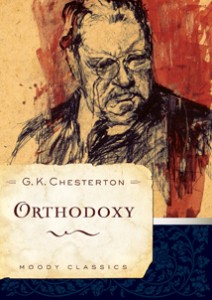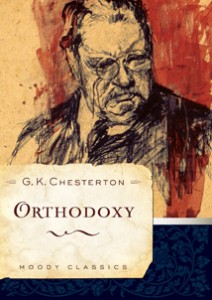In the first post of this series, Matthew Lee Anderson and I described the merits of G.K. Chesterton and his book Orthodoxy. We also invited you to read along and discuss the latest section of the reading plan with us each week.
Previously, we focused on the introduction, “In Defense of Everything Else,” as well as chapters 2 and 3, “The Maniac” and “The Suicide of Thought.”
Today, we are discussing chapters 4 and 5, “The Ethics of Elfland” and “The Flag of the World.”
Matthew: Beginning in the nursery room
Now we come to the pivot, when it really starts getting fun. Chesterton spent the first two chapters critiquing the ideologies of his age (and, frankly, of ours too). Now he sets about writing down the “three or four fundamental ideas,” which he found for himself. He starts, naturally enough, in the nursery room with the stories he learned from the “the solemn and star-appointed priestess at once of democracy and tradition.” Who’s that, you say? Why the nurse, of course. Chesterton’s point about the interrelationship between democracy and tradition are worth bearing in mind, because nursery tales are an inheritance that everyone has access to.
The fascinating thing about what Chesterton learns from these stories, though, is how subtle he is distilling philosophical positions. “We believe in bodily miracles,” he points out, “but not in mental possibilities.” Distinguishing necessity from possibility isn’t the most rigorous philosophical work that can be done, but good luck finding the difference ever drawn with such verve or why it matters clarified so well. And it matters, for the contingency of the world makes it seem like magic for Chesterton, a universe where wonder and enchantment goes straight to the heart of things. It’s all very dizzying, really, if you really try to follow him.
Trevin: the wonder of existence and in repetition
What strikes me most about Chesterton’s defense of fairytales is his ability to open your eyes to the sheer wonder of existence.
Login to read more
Sign in or create a free account to access Subscriber-only content.
Topics:
